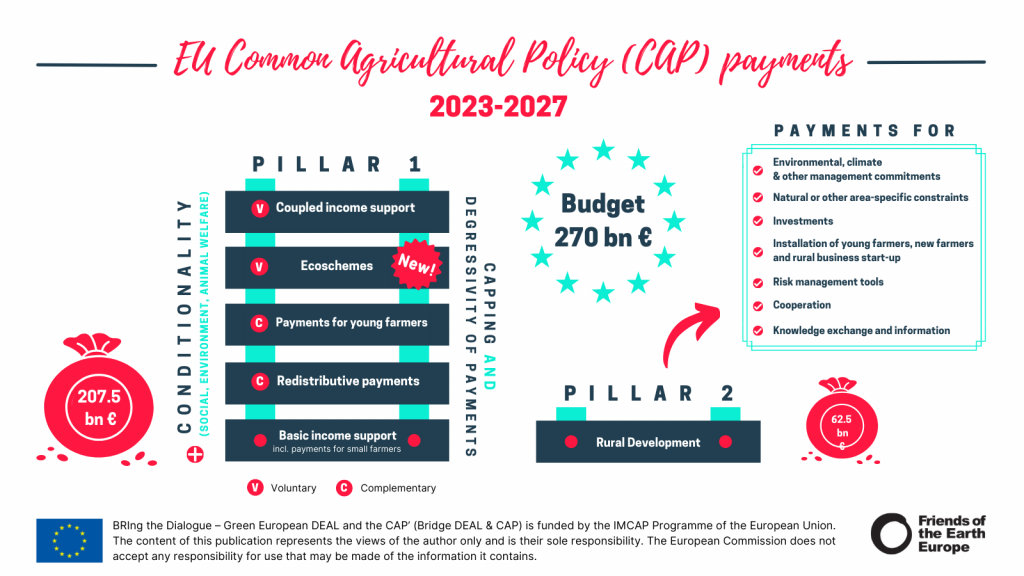The European Parliament greenlighted the reforms for a new Common Agricultural Policy (CAP) on its plenary voting session in Strasbourg.
A majority of MEPs voted in support of the legislative texts on the new policy agreed in June 2021 . The CAP is one of Europe’s oldest policies, spending 270 billion euros from the EU’s budget for the period 2023-2027.
Activists take the streets
The backing of the CAP reform package comes despite calls from civil society organisations and environmental activists demanding MEPs to #VoteThisCAPDown. A week before the vote, Belgian groups together with ‘Withdraw The CAP’ organised a protest in front of the European Parliament in Brussels, giving the floor to activists, farmers and Greens/EFA MEPs.
Sommer Ackerman, an environmental activist, said that
“Voting for this policy is a death sentence. Firstly to those most affected, the one who are suffering unfairly and disproportionally under the effects of climate change as a result of the greed and selfishness of the Global North.”
Tijs Boelens, a Belgian farmer, regretted that:
“Instead of using the CAP budget to convert our agricultural model into a system that belongs to the people and that gives power to the people, we are using it in a way that is making the agri-industry bigger and more powerful than it ever was.”
Green rhetoric but keeping the status quo?
After a morning debate with diverging views from MEPs on the effect of the reform for producers and the environment, Agriculture Commissioner Wojciechowski appealed to MEPs to support the reform, calling it the “biggest reform of the CAP in 30 years”. He also reassured that “small-and-medium sized farms should be saved by this reform” and that it will promote farming better for the environment, the climate, animal welfare.
For Friends of the Earth Europe, the reformed text indeed includes some wording assuming a greener reform but the basic mechanisms and tools of the policy will stay largely the same.

Some MEPs also stressed this point during the debate prior to the vote: the ambition and results of the reform will largely depend on the willingness of member states to use the tools offered by the policy.
For their part, national governments have repeatedly said they don’t want to overhaul the system and refused to link the CAP tools to the Farm to Fork strategy’s objectives, as suggested by the European Commission.
National governments: time to up our game!
Before the new policy can become reality from beginning 2023, national governments need to submit their draft CAP National Strategic Plans by the end of the year. They will then need to be reviewed and accepted by the Commission in 2022.
A report by IFOAM Organics Europe, an organisation representing the European organic movement, assessed some of these plans. The analysis is clear: the plans lack ambition and the European Commission must ensure that Member States review their draft Strategic Plans and come up with better measures and more appropriate budgets to boost organic production and demand.
Another assessment done by the European Environmental Bureau and Birdlife concludes that Member States fall short of saving nature.
There is still a lot of work to be done before the new CAP can enter into force. 2022 will still see many tense and exiting debates about the future of European farming.








